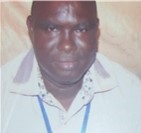Influencing the Performance of Quantity Surveyors
in Edo State, Nigeria
FEATURED PAPER
By Monday Omogiate Imafidoni and Joseph Aderemi Akinolaii
i Department of Quantity Surveying,
University of Benin,
Benin-City, Edo State, Nigeria
ii Department of Quantity Surveying,
Federal University of Technology
Akure, Ondo State, Nigeria
Abstract
Organizations are to provide work environment for their employees, but how conducive or unconducive this work environment is to their employees is paramount to this study. This study determines the importance of the physical work environment factors to consultancy, contracting, government establishment, and private non construction establishment in Edo State. A census survey was adopted to obtain data from Quantity Surveyors whose names are in the register of the Edo State chapter of Nigeria Institute of Quantity Surveyors (NIQS). Findings show that the factors influencing the physical work environment of Quantity Surveyors in Edo State can be statistically grouped into office ambience, office climate, workspace design and finishing, adequacy of office and electrical and electronic equipment. The most important factor influencing work environment under each of these groups are respectively: presence of indoor plants/flowers. Temperature, workspace design, comfortability of office furniture, and communication gadgets. The study demonstrates the importance of physical work environment factors to the performance of Quantity Surveyors working in an office organization in Edo State.
Keywords: Work Environment, Quantity Surveyors, Performance, Organizations, Edo State
- Introduction
In the past, organization has witnessed a remarkable transformation across the globe due to the increasing demand for employee’s performance (Offia Ibem et, al., 2011). The changes and new demands of these organizations in today’s competitive businesses are to provide a better, faster, and smarter workplace environment for employees to strive (Rorong, 2016). Employees will grow as a productive asset for the organization when they are provided with an ethical work environment that will advance their career (Tielung & Afifah, 2014).
Nigeria economic growth has witnessed a drop of 1.14% in workers’ productivity in the period 2013-2018 (Census and Economic Information Centre; CEIC, 2021). This drop could relate with the fact that most organizations focus more on performance rather than on the work environment when dealing with productivity issues. However, productivity in an organization does not depend solely on performance, but also on the work environment (Jarkas, 2010). Akinyele (2010) postulated that about 80% of productivity problems reside in the work environment of every organization.
In the Nigeria construction industry, quantity surveyors are fewer compared to sister professionals such as architects and engineers. Records show that there are 4,122 registered quantity surveyors (Quantity Surveyors Registration Board of Nigeria; QSRBN, 2021), relative to registered architects are 5,060 (Architects Registration Council of Nigeria; ARCON, 2021) and registered engineers are 57,053 (Council for the Registration of Engineering in Nigeria; COREN, 2021). This implies that the ratio of quantity surveyors to architect is 1:1.23, while the ratio of quantity surveyors to engineers is 1:14, which showed that the quantity surveyors have more work load to handle. The need exist therefore to provide a work environment that optimizes the productivity and performance of quantity surveyors in Edo State, Nigeria.
- Literature review
2.1 Physical Work Environment
Physical work environment factors such as workstations, furniture, ventilation, lighting, noise, and personal protective equipment as posited by Gunaseelan and Ollukkaran, (2012) may affect the comfort of employees positively or negatively. Dul et al., (2011) agreed with this assertion but also highlighted indoor plants/flowers, calming colours, and positive smell as important factors to be considered if an employee must performance in his workplace.
For instance, Rorong (2016) and Dul et al., (2011) agrees that comfortability of office furniture, level of noise, and adequacy of lighting are among the factors affecting the performance of employees in their work environment. However, Stattin and Jarvholm (2005) and Robertson et al., (2008) believe that adequate power supply, workspace design, and office privacy are selected among the factors affecting the performance of employees.
More…
To read entire paper, click here
How to cite this paper: Imafidon, M. O. and Akinola, J. A. (2022). An Exposition of Physical Work Environment Factors Influencing the Performance of Quantity Surveyors in Edo State, Nigeria; PM World Journal, Vol. XI, Issue XI, November. Available online at https://pmworldlibrary.net/wp-content/uploads/2022/10/pmwj123-Nov2022-Imafidon-Akinola-physical-work-factors-influencing-quantity-surveyors.pdf
About the Authors

Monday Omagiate Imafidon
Edo State, Nigeria
![]()
Monday Omogiate Imafidon is a Graduate Assistant in the Department of Quantity Surveying, University of Benin. He holds a Higher National Diploma in Civil Engineering from Auchi Polytechnic (2004), and a Bachelor of Science in Quantity Surveying from Joseph Ayo Babalola University, Osun State (2020) and currently undergoing master’s programme at Federal University of Technology, Akure (FUTA). His research interest is on concrete technologies, construction health and safety (H&S) with focus on culture, behaviour and leadership in relation to construction health and safety performance. Mr. Monday can be contacted on monday.imafidon@uniben.edu, or reallymond@gmail.com

Dr. Joseph Akinola Aderemi
Akure, Nigeria
![]()
Dr. Aderemi Joseph Akinola is a Senior Lecturer at the Department of Quantity Surveying, School of Environmental Technology. He holds a Doctor of Philosophy Degree in Quantity Surveying at Federal University of Technology, Akure (FUTA). His research interest is on industrial design and construction management. Dr. Aderemi can be contacted on akinolaja[@]yahoo.com









